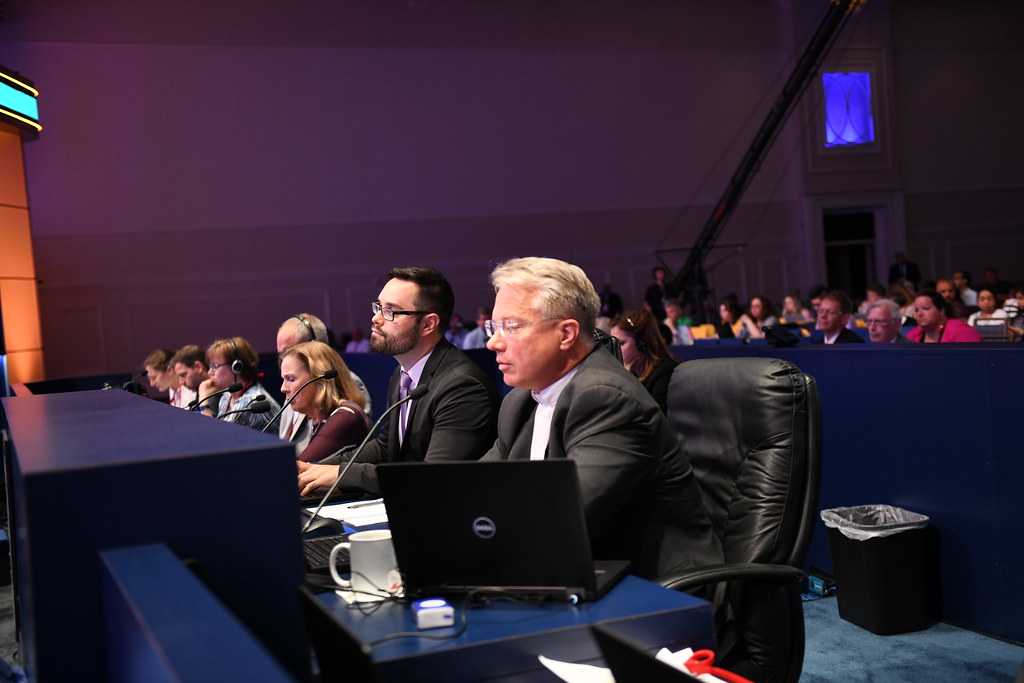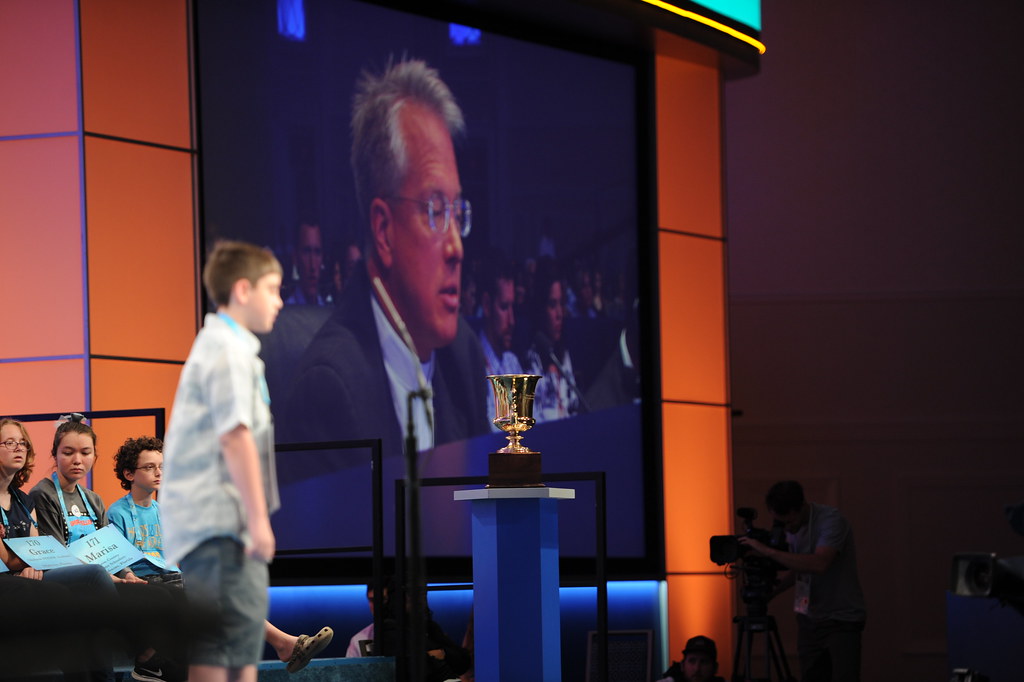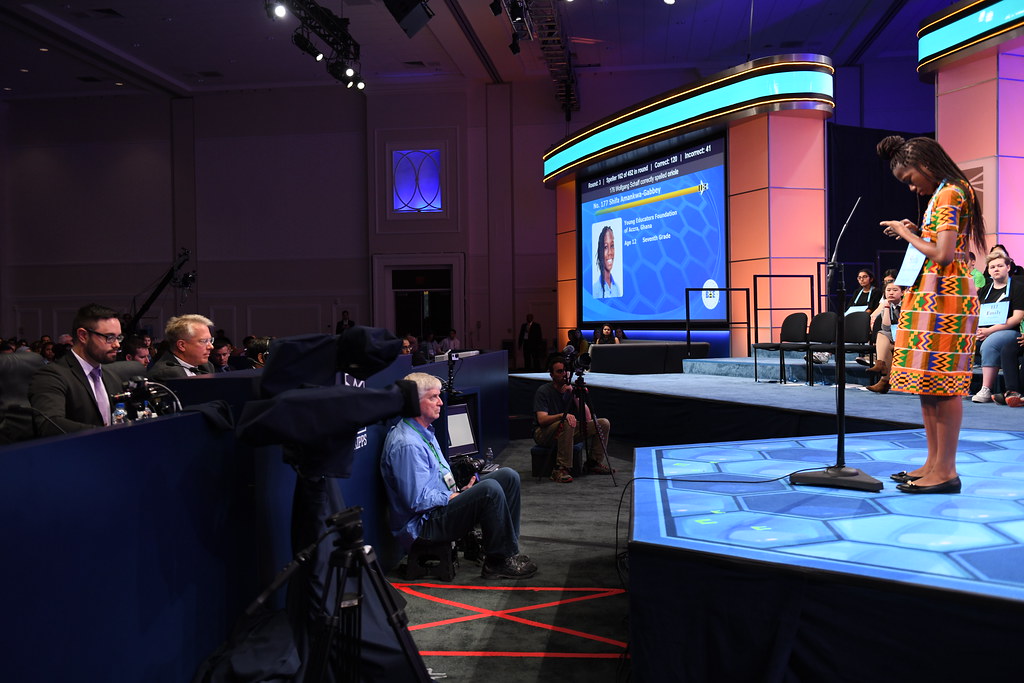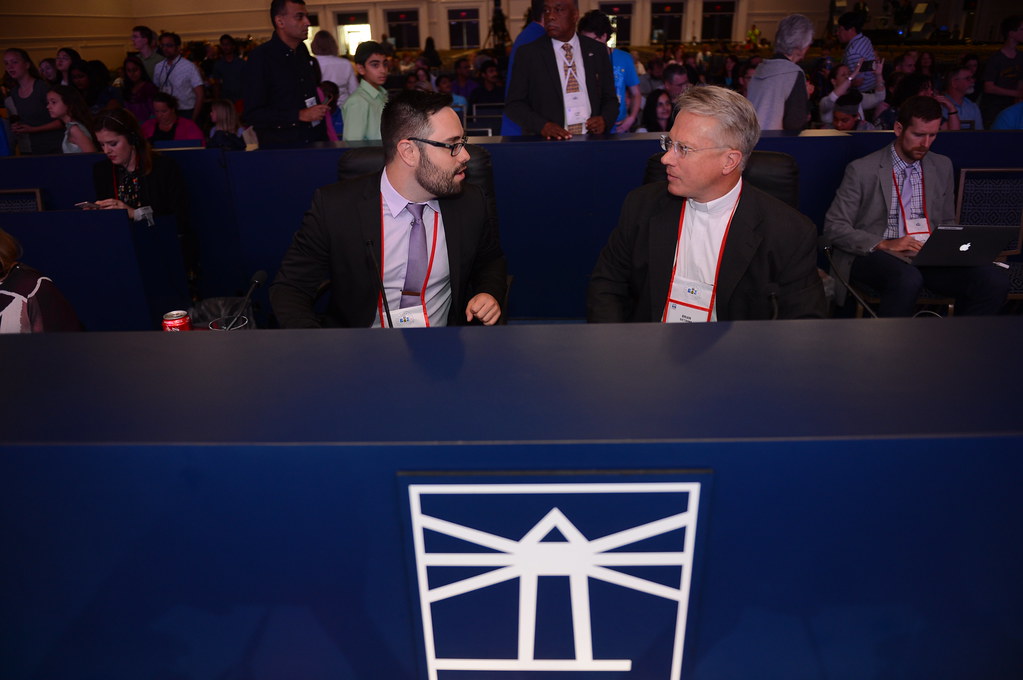Hey there, Bee fans. It was an exciting night, celebrating Champion Karthik Nemmani. But now we want to rewind to earlier in the week, when Associate Pronouncer Brian Sietsema took over the microphone for the first time.
Dr. Sietsema has been the backup pronouncer for Dr. Bailly for more than a decade, but in all that time, he's never pronounced a word for competition. Most of his in-Bee notoriety comes from his confirmation of root words when spellers ask questions.
That all changed Wednesday, when Dr. Bailly took planned breaks to save his voice for Thursday's Finals.
"It's equal measures thrilling and terrifying," Dr. Sietsema said. "I got into a zone and it almost went too fast. It seemed over too fast."
To the lay person, it's just reading a word on a page. But pronouncing for a spelling bee, Dr. Sietsema found, is much more trying.
He compared the effort to completing a perfect Olympic dive ten times in a row.
"You see how many things there are to do at once," he said. "You have to say the word perfectly many times over. ...If you do anything less than that, you run the risk of misleading the speller."
When someone hears a word, it's usually in the context of a sentence, with other words around it to help provide meaning, Dr. Sietsema said. But in a spelling bee, there is no context to help disambiguate confusing words. The pronunciation holds a lot more power.
"When you say a word in isolation, all the weight falls on every sound," he said. "Sometimes, a word in isolation sounds like we've never used it before."
On top of that, the pronouncer has to anticipate information that a speller might not ask for -- like a homonym -- but may need to know. He must act quickly within the time limits. And he must put the often-nervous speller at ease, he said.
"There's a young person up there bursting with hope, but very nervous," he said. "You have to not just focus on your own nervousness -- mine was quite adequate."
It's a lot of situational awareness, Dr. Sietsema said, especially as sentences are created on the fly or instructions come in from other officials about what to do in a moment.
To handle the pressure, Dr. Sietsema said, he wrote the word "breathe" on a note card, to remind him to do it. The card started out in front of him, then ended up in his hand. There, he said, it was the best reminder.
"It's easy to forget," he said. "It's like being on a surfboard, a big wave is coming, and you're wondering if you can keep your balance."
Eventually, the spellers -- who are used to hearing Dr. Bailly's voice -- started smiling at him, or greeting him by name. That, he said, was gratifying.
Dr. Sietsema used to be the pronunciation editor at Merriam-Webster, but is now parish priest at a Greek Orthodox church in Michigan.
Working at the Scripps National Spelling Bee is a chance to interact with a "more pure" form of linguistics, he said.
Dr. Sietsema said he was glad to have gotten a chance at the microphone, but even more glad it was planned. Otherwise, he said, it would have been hard to enjoy it.
Still, he said, there's room for improvement. Sietsema said he might like to practice more -- perhaps by pronouncing at a local bee, in Michigan.
"I'm so glad to have had that chance, not to prove to anybody, but to prove to myself," he said. "Every great team has a great bench, and I guess the secret's out now. The Bee has a deep bench."



